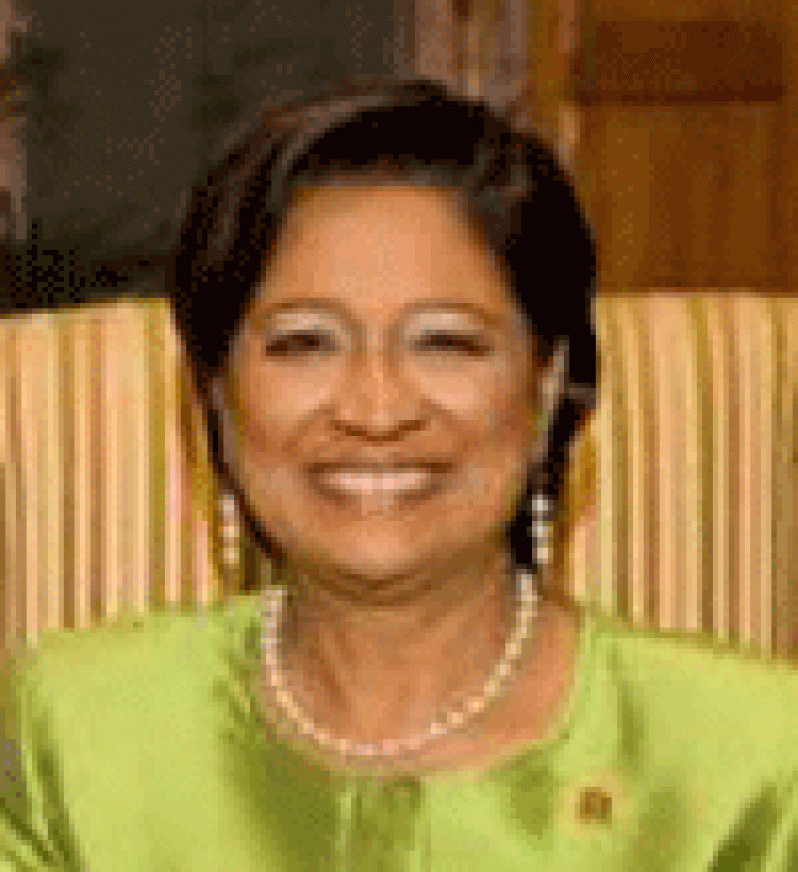A NATIONAL holiday in Barbados on Monday afforded the opportunity to reflect on a few current political developments of relevance to this and other Caribbean Community countries, as Trinidad and Tobago prepares for ‘Carnival 2013’ and loses no sweat over domestic party politicking; after all, it’s the official season for fun and frolic.
 First, the understandable jubilation by Tobagonians over achieving a stunning, historic ‘clean sweep’ of the 12 seats in the People’s National Movement-controlled Tobago House of Assembly that the incumbent has dominated for a dozen years.
First, the understandable jubilation by Tobagonians over achieving a stunning, historic ‘clean sweep’ of the 12 seats in the People’s National Movement-controlled Tobago House of Assembly that the incumbent has dominated for a dozen years.
That landslide victory would have come as a shock to Prime Minister Kamla Persad-Bissessar and her Port-of-Spain based People’s Partnership Government (PPG), currently in the third year of a first-term administration.
She had invested so much financial support and goodwill for success by the main “challenger for change”–Tobago Organisation of People (TOP)—only to be left to face the shock of a “wipe out”, with none more battered than he who is now destined to remove himself from the top of TOP—Ashworth Jack (party leader).
The electoral defeat included TOP’s two parliamentarians in the Prime Minister’s People’s Partnership administration that controls 29 of the 41 seats in the House of Representatives.
The ‘house’, rather the mansion that ‘Jack’ Ashworth built—and which was the focus of so much of the “bobol” (corruption) campaign talk, came crashing down on Monday’s election, leaving Prime Minister Persad-Bissessar quoting, for comfort, lines from the internationally famous poet Maya Angelo: “While one may encounter many defeats, one must not be defeated…”
The Prime Minister was stoic in her assessment of the outcome and offered quite a mature, realistic response in reassuring the long-serving Chief Secretary of the THA and PNM’s stalwart, Orville London, of her central government’s commitment of cooperation in the interest of the island’s development.
For his part, the PNM’s leader, Keith Rowley, was quick to recognise the rather energising message of the electorate’s verdict: ‘Tobago has once again lit the candle for Trinidad…” he proudly declared.
Rowley’s optimism must also take into consideration the reality that in party politics all things are possible and a week in politics could be a pretty long time. In the current political scenario in T&T, a constitutionally due parliamentary election is more than two years away and counting.
Writing in his Express column last Sunday, the very experienced former diplomat, Reginald Dumas, noted what could not have escaped the thinking of the Prime Minister and leader of the United National Congress (dominant partner of her coalition administration): “This election”, he observed, ”isn’t merely about the THA; it’ s a national referendum…”
While Tobagonians were voting on Monday and the people of Nevis’ (sister-isle of St.Kitts) were preparing to do the same the following day, Barbadians were celebrating their annual January 21 national holiday that commemorates the life and times of National Hero, Errol Walton Barrow (Father of Independence).
The outcome of Tuesday’s election was a defeat for the incumbent Nevis Reformation Party (NRP) of Premier Joseph Parry by former Premier Vance Amory’s Concerned Citizens Movement (CCM).
The new parliamentary configuration in Nevis could well further aggravate problems for Prime Minister Douglas’s shaky St.Kitts Labour Party’s administration in Bassetterre.
Barbadian scenario
Meanwhile, in Barbados, Prime Minister Freundel Stuart, leader of the ruling Democratic Labour Party, who heads a first-time administration, seems determined to impose his own brand of leadership by stubbornly refusing to name the date for a new general election.
‘This was expected to be done prior to the passing last January 15 of the fifth anniversary of the last election that brought it to state power with a 20-30 parliamentary majority.
But Stuart has defied not only calls for such a date from the opposition Barbados Labour Party (BLP). He has also been sneering at media commentators, reminding all and sundry that naming the election date “is my call”.
And so it is. But this “right” could come with a political cost to be determined by the electorate whenever they trek to the polling booths some time next month.
Polls and political pundits continue to predict a return to government of former three-term Prime Minister Owen Arthur’s BLP. However, there were straws in the wind of a more recently invigorated DLP base that appears not being disposed to break with an historical pattern of giving incumbents a second chance. Such a trend perhaps helps to explain the refusal of Prime Minister Stuart to genuflect to some passionate criticism over his failure to name the election date.
Therefore, on Monday, ’Errol Barrow Day’, he was urging supporters at the DLP headquarters to “ready yourselves…you will be hearing from me very shortly…” He maintains a public posture that scoffs at suggestions that the coming election could well break with the tradition of restricting an incumbent party to just one term.





.jpg)








